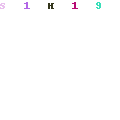 jiuyou(中国)官方网站
jiuyou(中国)官方网站

欢迎您进入jiuyou(中国)官方网站官网!
公司简介
Company profile



jiuyou(中国)官方网站成立于1996年7月,公司原名“jiuyou(中国)官方网站建设工程招标代理有限公司”。原隶属于jiuyou(中国)官方网站建委(jiuyou(中国)官方网站建筑业管理局),是浙江省第一批招标代理、造价咨询企业。为响应政府主管部门的号召,于2000年12月实施了具有历史性的改制工作,完成了独立核算、自主经营的战略转变。2021年,公司正式更名为“jiuyou(中国)官方网站”,以全新的面貌、更高的服务质量、更严谨的管理体系为客户提供更为优质的服务。公司在发展的每个阶段都以前瞻的思想……
了解详情>>政府合作
government cooperation
| 省 级: | 浙江省审计厅、浙江省财政厅…… |
| 地市级: | jiuyou(中国)官方网站审计局、jiuyou(中国)官方网站财政局、温州市财政局、湖州市农业局…… |
| 区县级: | 瑞安市财政局、余姚市农林局、成都市凉山州公路管理局;桐乡市财政局;桐乡市审计局、龙泉市建设局、建德市财政局、浦江县财政局、龙游县民政局、青田县财政局、重庆市奉节财政局,重庆市石柱县财政局,海盐县财政项目预算审核中心;海盐县交通运输局、云和县财政局;jiuyou(中国)官方网站余杭区财政局;jiuyou(中国)官方网站余杭区审计局;jiuyou(中国)官方网站余杭区发展和改革局;jiuyou(中国)官方网站临安区财政局;jiuyou(中国)官方网站临安区审计局;金华市金东区农业农村局;金华市婺城区卫生健康局;金华市金东区卫生健康局;金华市婺城区住房和城乡建设局;金华市金东区教育体育局;jiuyou(中国)官方网站富阳区财政局;jiuyou(中国)官方网站富阳区审计局;jiuyou(中国)官方网站桐庐区财政局;jiuyou(中国)官方网站桐庐区审计局;台州市黄岩区财政局…… |
Copyright @ 2020 hzgcgl.com All Rights Reserved. 版权所有:jiuyou(中国)官方网站 开创网络 技术支持 网站备案号:浙ICP备11006319号-1